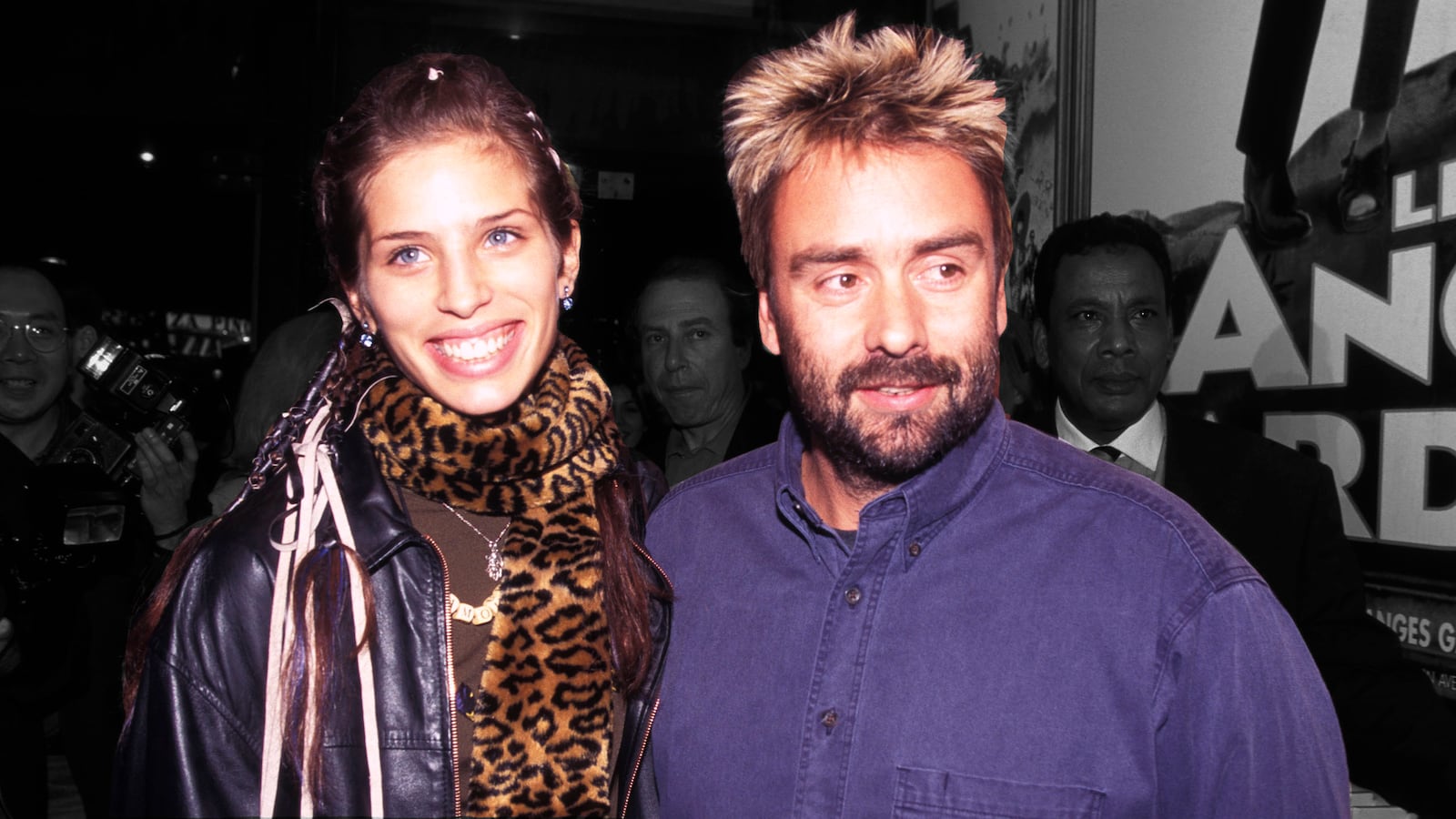There have been three headline-grabbing episodes in the past week that should give supporters of the #MeToo movement in France—or #Balancetonporc (“Expose your pig”)—serious pause.
On Saturday evening, after Asia Argento delivered a courageous speech at the Cannes Film Festival’s award ceremony calling out Harvey Weinstein, who she says raped her during the fest in 1997, the actress and filmmaker was shunned by all those in attendance, save Spike Lee.
Earlier that very day, the news broke that a young actress had filed a complaint with police accusing French filmmaker Luc Besson of “a violent sexual assault.” The woman, who wishes to remain anonymous, had acted in two of Besson’s films, and alleges the rape occurred following a May 10 meeting with the director at the Bristol Hotel in Paris. (Besson denied the accusations.)
And last Wednesday, France’s National Assembly passed measures intended to curb sexual harassment and assault, imposing heavy on-the-spot fines for catcalling and allowing underage rape victims an additional decade to file a complaint (up to 30 years after their 18th birthday). It failed, however, to establish a firm age of consent—a contentious issue in the Gallic country, given that French prosecutors recently declined to bring charges against two adult men who had sex with 11-year-old girls. While the age of consent in France is technically 15, lawmakers have determined that sex between persons over 18 and persons under 15 can only be classified as rape if it can be proven that the victim “lacked the necessary discernment to consent.”
The sexual-assault allegation against Besson—and his home country’s continued reluctance to pass sufficient statutory-rape laws—brought to mind the movie that made him an international star: Léon: The Professional.
Today, the 59-year-old Besson is the Michael Bay of France—a directorial giant responsible for a slew of bloated, bullet-riddled blockbusters like The Fifth Element, Lucy, and last year’s Valerian and the City of a Thousand Planets, a $180 million sci-fi extravaganza that ranks as the most expensive foreign film of all time. He also runs the film studio EuropaCorp, which, despite its estimated $285 million debt load, was recently in talks with Netflix about a possible acquisition. But in the early ’90s, he was just a hotshot indie filmmaker with a few impressive movies under his belt, including the 1990 action flick La Femme Nikita.
That all changed with Léon.
Released in 1994, it tells the story of a muted Italian hitman (Jean Reno) in New York City’s Little Italy who finds himself the caretaker of a 12-year-old girl, Mathilda (Natalie Portman), and wanted by a gang of corrupt DEA agents, led by a pill-popping, gleefully unhinged Gary Oldman.
There are echoes of Pygmalion and Lolita, as Mathilda is schooled in the ways of the “cleaner” while repeatedly confessing her love to her much-older protector. In one scene, she dresses like Marilyn Monroe and performs a seductive “Happy Birthday, Mr. President” routine; in another, that was apparently too racy for the U.S. release, she discusses wanting to lose her virginity to him. (Léon does not reciprocate.)
Some critics, including the late, great Roger Ebert, found the relationship disturbing. “But always at the back of my mind was the troubled thought that there was something wrong about placing a 12-year-old character in the middle of this action… in what is essentially an exercise—a slick urban thriller—it seems to exploit the youth of the girl without really dealing with it,” he wrote.
Still, the film was a critical and commercial hit, grossing $46 million worldwide against a $16 million budget and elevating Besson to the A-list.
What many were—and still are—unaware of was that Léon was a creepy example of art imitating life.
According to The Washington Post, Besson met the child actress Maïwenn when she was 12, the same age as Mathilda in the film. He was 29. They claim to have started seeing each other romantically when she turned 15. Maïwenn gave birth to their daughter when she was 16 (and Besson was 33), and subsequently relocated to Los Angeles. She appears briefly during the opening sequences of Léon as “blonde babe”—her listed character name—lying naked in bed, her body wrapped in sheets, having just serviced a middle-age crime boss.
“When Luc Besson did Léon, the story of a 13-year-old girl in love with an older man, it was very inspired by us since it was written while our story started. But no media made the link,” Maïwenn said.
In an interview with the French publication L’Express, Maïwenn claimed that Léon was “this love story between a 12-year-old girl and a 30-year-old man [that] was still very much inspired by ours,” and explained how she attempted to write a book about her relationship with Besson and years rubbing shoulders with movie stars in Los Angeles. But when the publisher gave it the title Beverly Hills or Lolita Love, she banned its publication. (Maïwenn did not respond to requests for comment for this story, while a representative for Besson issued the following statement to The Daily Beast: “Luc Besson has never commented [on] his private life, his approach remains unchanged.”)
During the filming of Besson’s follow-up movie, The Fifth Element, wherein Maïwenn portrayed the memorable blue opera-singing alien Diva Plavalaguna, the director left her for the film’s lead actress, Milla Jovovich. “I had my daughter very young, so I had fulfilled my dream, and then… he left me. Everything then collapsed for me,” Maïwenn recalled. She moved back to France with their young daughter and gradually evolved into a gifted filmmaker.
Her most acclaimed film to date is the 2011 drama Polisse, about a photographer (Maïwenn) assigned to shadow a Child Protection Unit that tracks down pedophiles and rescues sexually exploited children.






